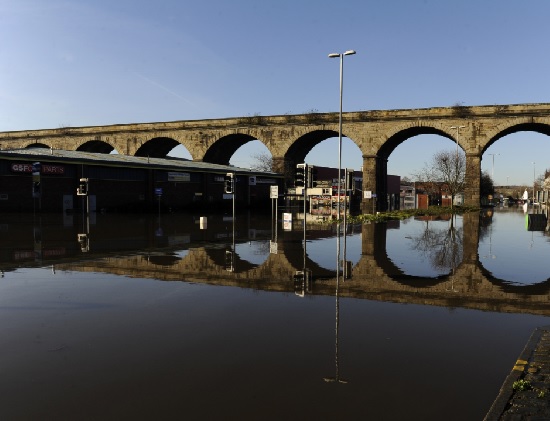Role play exercises are to be used to help overcome challenges of communicating about flooding to communities at greatest risk.
This is one of the tools that will be developed as part of a new project to help authorities that manage flood risk in Yorkshire, including the River Aire and Wortley Beck catchment.
The exercises will be used to simulate scenarios during a flood and the development of flood defence schemes to illustrate the communication needs of communities.
Other tools will include ‘How to guides’ to help communicate complicated flood processes, a series of webinars to enable learning from leading academics and practitioners in the field and buddy systems to enable organisations and flood wardens in different geographical locations to learn from each other and develop best practice.
At the end of 2019, the key partners in the project approached iCASP to ask for help improving their communications to people at risk to enable them to become more resilient to flooding.
Through working with iCASP they have teamed up with academics from Universities of Leeds, Sheffield and Hull to find ways to overcome their communications challenges.
One in six homes in England are at risk of flooding and yet research commissioned for the Environment Agency’s latest Flood Action Campaign showed one in eight (12%) people have no idea whether they live in a flood risk area. This means that millions of people could be at risk of being caught out by a flood.
Dr Jenny Armstrong, impact translation fellow with iCASP, said:
“It is crucial that we support those responsible for managing flood risk so that they can help residents and businesses to understand their own flood risk and what they can do to increase their resilience to flooding.
“Climate change is likely to result in an increase in extreme weather events so effective relationships between organisations and communities are extremely important for ensuring that everyone can work together to tackle flood risk.”
Jonathan Moxon, flood risk manager with Leeds City Council, said:
“We know flooding has a devastating effect on peoples’ lives, it can lead to mental health problems for years after the event.
“This project is really important because we give people the information they need to be as prepared for flood events as possible. It will help them to take the action they need to keep safe and mitigate the impacts of flooding.”
Some of the challenges to be tackled are:-
- Communicating technical terminology to the public to clarify the complexities around the likelihood and magnitude of flooding. These include the level of protection offered by flood schemes, timescales for the development of a flood scheme, sources of flooding and the ways in which floods function
- Using digital media effectively to communicate about flood risk especially whilst COVID restrictions limit face-to-face communications
- Getting the messages across to groups of people who are difficult to reach
- Providing clarity around the roles and responsibilities of different organisations involved in managing flood risk, ensuring good coordination between them and signposting members of the public efficiently.
The next steps will be to design and deliver these tools, which will be launched in Autumn.
The scheme is run by the Yorkshire Integrated Catchment Solutions Programme (iCASP), in partnership with City of Leeds Council, City of York Council, the Environment Agency and the Living with Water Partnership. The project has just been approved by iCASP’s Governance Group.
Find out more about the project and its progress on the iCASP website and also by following @YorkshireiCASP on Twitter.

